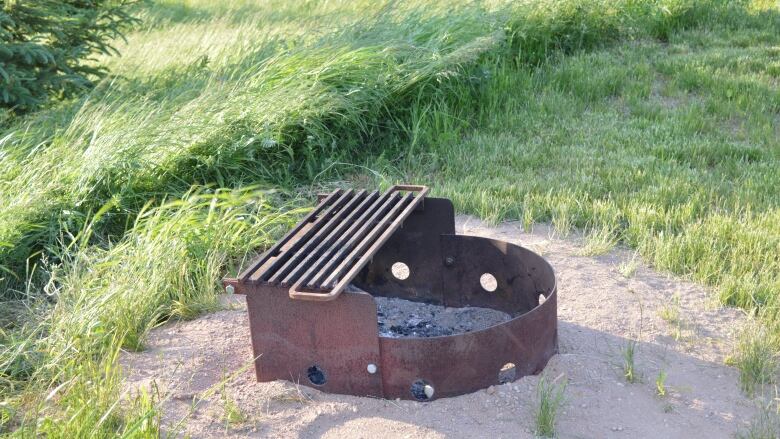Campground burning regulations a double standard, says landowner
Private landowners restricted during low- and moderate-risk conditions; campgrounds are not

Wildfires affecting parts of Nova Scotia have prompted some property owners to question why campgrounds are exempt from burning restrictions imposed on the rest of the province.
Jean Marsh lives near Parrsboro, close to Five Islands Provincial Park.
Marsh realized recently that thepark was not subject to the same burning restrictions as herself and other nearby landowners, causing her concern for her own safety.
"Realizing how vulnerable we were living next to a campground that played by different rules, I realized how vulnerable other Nova Scotians are as well."
Double standard
Under extreme risk conditions such as Nova Scotia is currently experiencing burning is banned on both private land and campgrounds.
Nevertheless, Marsh told CBC's Information Morning that the current policy for lower-risk burning is a double standard.
While burning by private landowners is restricted to certain times of day under low and moderate risk conditions, burning on campgrounds is allowed anytime.
"What is the logic behind that? If a zone is at risk for fire, then why does it change when you go across the property line into a campground?"
"Rules should be consistent for everybody no matter where you are."
'That's not safe'
Marsh said while some campgrounds may have greater safety precautions in place than private landowners, that isn't necessarily the case.
At a recent trip to a campground in western Nova Scotia, Marsh said the fire pit was made of bricks, with what looked like an oven rack on top; the pit was directly on the grass, and had only about six feet of clearance with overhanging trees.
"To me that's not safe, yet they were allowed to have campfires in that park. But we couldn't have a campfire on our own land under those conditions."
Jim Rudderham,operations manager for forest protection for the province, told CBC Newsthat provincial staff take steps to ensure safe burning in provincial park campgrounds, including annual inspections of fire pits.
'There should be consistency'
Marsh said she doesn't think burning restrictions should be loosened on private land; she said the current restrictions are appropriate given the risks.
Instead, she said the the ban should be tightened on all burning, regardless of where the fire pit is found.
"I just think there should be consistency for our own safety."
With files from CBC's Information Morning












_(720p).jpg)


 OFFICIAL HD MUSIC VIDEO.jpg)
.jpg)



























































































